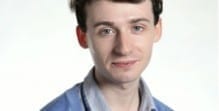St Andrews
University of St Andrews is Scotland’s first university and the third oldest in any English-speaking country. In 1410, teaching in the community of St Andrews was present, and in 1413, the University was formally constituted. Medicine was the third subject to be taught there from 1450. However, the establishment of the School of Medicine as we formally know it was in 1897 (at the time, it was also known as Butes Medical School).
Currently, St Andrews is creating a new MBChB medicine programme which will have a five-year community-orientated structure. It is expected that the first cohort of students will attend in 2025.
About The Course
The six-year Medicine degree programme at St. Andrews is slightly different from other Medicine courses. The first three years are undertaken at St. Andrews and is followed by a further three years of training with a partner medical school.
St. Andrews offers an integrated curriculum within a clinical context with the key components of the course being patient safety and professionalism. Modules are taught through methods such as laboratory-based practicals, lectures, small group tutorials, research projects and clinical attachments.
A unique course structure is in place at St Andrews in comparison to other medical school. Students will spend their first three years at St Andrews and graduate with the Medicine BSc (Hons) degree. For the remaining three years of their training, they will be allocated to one of the partner medical school. This partner medical school allocation is dependent on a few factors:
- Chosen course pathway
- Location preference
- Academic performance in first semester of second year
- Overseas applicants will progress to Manchester medical school
Structure Of The Course
Year 1
The first academic year is split into Foundations of Medicine 1 and Foundations of Medicine 2. The aim of this year is to stress the interrelationships between the preclinical sciences, whilst also developing communication skills and medical ethics in Medicine. In this year, the focus will be to have an anatomical overview of the major body systems and the dissection of the back. The second half of the year will focus on an in-depth study of the musculoskeletal system.
Year 2
The second and third years will have the Honours programme running throughout them where they will focus on the normal and abnormal functioning of specific physiological systems. The second year comprises two modules, where knowledge from the first year will be developed by introducing new concepts. The second year mainly focuses on the cardiovascular, respiratory, renal gastrointestinal and reproductive systems, with a series of primary health care attachments within the community.
Year 3
The third year comprises three modules. Semester one will focus on the first module where normal function and dysfunction of the central nervous system and endocrine organs are taught.
Semester two will contain two modules. In one module, pupils will have the opportunity to undertake a significant student-selected research project. In the second module of semester two, students will spend time focusing on applying Medicine and thus developing clinical skills.
Year 4-6
This period of training will be continued at a partner medical school as mentioned before.
Academic Requirements
GCSEs: A minimum of five GCSEs at grade A or 7 to be taken in one sitting. Applicants with achieved A-Levels may be considered with less than five A grades (grade 7 in numerical grading) at GCSE.
A-levels: AAA Must include Chemistry and one of Biology, Mathematics or Physics. If not passed at AS or A-Level, applicants must have GCSE 5 in Biology, Mathematics, and English (either Language or Literature).
Scottish Higher: AAAAB Highers must include Chemistry and one of Biology (or Human Biology), Mathematics or Physics. If not passed at Higher, applicants must also have National 5 grade B in Biology (or Human Biology), Mathematics, and English.
Scottish Advanced Higher: Predicted to achieve at least BBB Highers or Advanced Highers in S6 studies. –
International Baccalaureate: 38 points (HL 6,6,6 plus SL 6,6,6 → HL in Chemistry and HL in one of Biology, Mathematics or Physics. If not passed at HL, applicants must have SL in Biology, Mathematics and English.)
IELTs (International applicants only): 7 in all four components, to be taken at one sitting.
Bachelor's Degree (Graduates only): Upper second or first class Honours degree in Science (or equivalent) obtained within the previous three years prior to entry. To include B grade in Chemistry at Higher or A-Level, or at Advanced Higher or equivalent and B grade in Biology, English and Mathematics at GCSE or equivalent.
Mitigating Circumstances
Resits policy: St Andrew’s typically does not consider applicants who have not met their minimum academic requirements or those who are resitting their exams in order to upgrade their results.
However, students who achieved qualifications that are ‘borderline’ for meeting entry requirements may be considered with extenuating circumstances.
Typically, ‘borderline’ is one grade below those required for entry. Applicants whose grades are less than ‘borderline’ for meeting the entry requirements will not be considered.
Re-sitting GCSEs (or equivalent) is allowed to meet specific subject requirements. For example, GCSE English at grade C could be re-taken to achieve Grade B.
Extenuating circumstances: Will be considered on a case-by-case basis and generally applies to those who take more than the normal number of years to obtain their qualifications, or those with achieved qualifications that are ‘borderline’ for meeting entry requirements
Deferred entry: An applicant may only request a deferred entry into the admissions cycle immediately following the
admissions cycle initially applied for.
Transfers: It is not possible to transfer into the Faculty of Medicine.
Further Entry Requirements
Work experience: Students must have shadowing experience in a health or caring setting. St Andrews specifies multiple ways as to how this experience could have been gained, including in hospitals, GP surgeries, nursing homes or local hospices, or by working with people who have ill health or a disability.
Personal statement: This should explain your reasoning for wanting to study medicine and why you think you would make a good doctor. It is expected that you have a good insight into medicine and healthcare which you have gained from relevant medical-related work experience and general reading.
Admissions Process
There are approximately 500 interview places, for which applicants are considered based on their academic record, reference and relevant medically related work experience. Applicants that can meet these initial criteria will then be ranked based on their UCAT global score where the top ~500 applicants will be offered an interview. Offers will be based on a few factors:
1) Interview score
2) ‘Route’ for which applicants have applied
3) When applicants have the same interview score, global UCAT score will be used
Admissions Tests:
UCAT ✅
To be considered for interview, applicants must have a strong academic record, a positive reference, and relevant, medically related work experience. Applicants meeting these requirements will be ranked on the basis of their UCAT score. Those ranked in the top 400 or so will be given an interview. Last year’s lowest UCAT (invited to interviews) score was around 2400. ‘Widening participation’ applicants who meet the academic grades will be given a 10% increase in their UCAT score which will be used in ranking for interview invitations.
Interview Type: MMI
Interview Topics:
Interview Topics:
- understanding of the realities of a career in Medicine
- communication and interpersonal skills
- role-play and interaction with an actor
- critical thinking
- reflection
- ethical reasoning
The MMI comprises of six stations which each lasting six minutes.
SJT is considered in the interview and incorporated into the overall interview score. St Andrew’s offers online interviews for overseas applicants and in-person interviews for all other applicants. You can learn more about the St Andrew’s interview process in our guide.
Admissions Statistics
| Total number of applicants: | 1736 |
| Total number of places: | 220 |
| Total number of entrants: | 220 |
| Acceptance rate: | 12.67% |
Fees
| Home students: | £1820 pa |
| Rest of UK: | £9250 pa |
| International students: | £36.989 pa |
Teaching Methods
Teaching style: Integrated approach where modules are taught using a variety of methods; lectures, laboratory-based practicals, small group tutorials, clinical placements, audio-visual capture system for training and feedback on clinical skills, computer-based resources, research projects and ward simulation exercise (only in third year).
Intercalation mode: Students entering Medicine at St Andrews have the unique opportunity to graduate after three years with a BSc Honours degree before moving on to one of its partner medical schools to complete their training as a doctor and graduate with an MBChB/MBBS.
Graduate Prospects
Average earnings for a all full-time Medicine (non-specific) courses after 5 years is typically £46K (ranging usually between £39.5K – £51.5K)
FAQs
Can you do Medicine at St Andrews?
At St Andrews, students can pursue a Bachelor of Science (BSc) degree in a relevant subject such as Medical Sciences, Biology, or Chemistry, and then transfer to a partner medical school for the clinical years of their medical training. St Andrews has partnerships with other medical schools, such as the University of Dundee Medical School, where students can continue their medical education after completing their BSc degree.
Is St Andrews a good university for Medicine?
St Andrews is currently 14 on the Medicine league table when comparing all the medical schools in the UK, with a student satisfaction score of 4.08/5.A few factors to consider when evaluating the suitability for your medical education include:
- Reputation: as mentioned before St Andres is highly respected globally for its academic excellence and research output
- Resources and facilities
- Partnerships: as mentioned above, the partnering medical schools to which where your clinical training will continue
- Location: in the coastal town of Scotland, offers unique lifestyle for some students
- Entry Requirements
Ultimately, whether St Andrews is a good choice for your medical education depends on your individual circumstances and preferences
What is the hardest medical school to get into the UK?
Universities of Oxford and Cambridge are known to be harder medical schools to get into due to their highly competitive nature, with rigorous academic requirements and higher performance expectations in aptitude tests.
What is the acceptance rate for St Andrews Medicine?
Since St Andrews does not offer a traditional medical degree program, it doesn’t have a specific acceptance rate for medicine. Instead, acceptance rates would vary depending on the specific BSc program and the partner medical school to which a student transfers for clinical training.
What is the average UCAT score for St Andrews?
In the 2022 entry, the average UCAT score invited for interview was 3079 (RUK) and 2802 (Scotland)- with the average UCAT score of 3083 (RUK) and 2804(Scotland) given an offer.
Average UCAT score to be invited for an interview was 3054 (RUK) for the 2023 entry,

School Details
- Website
- http://medicine.st-andrews.ac.uk/
- medicine@st-andrews.ac.uk
- Phone
- +44 (0) 1334 463599

